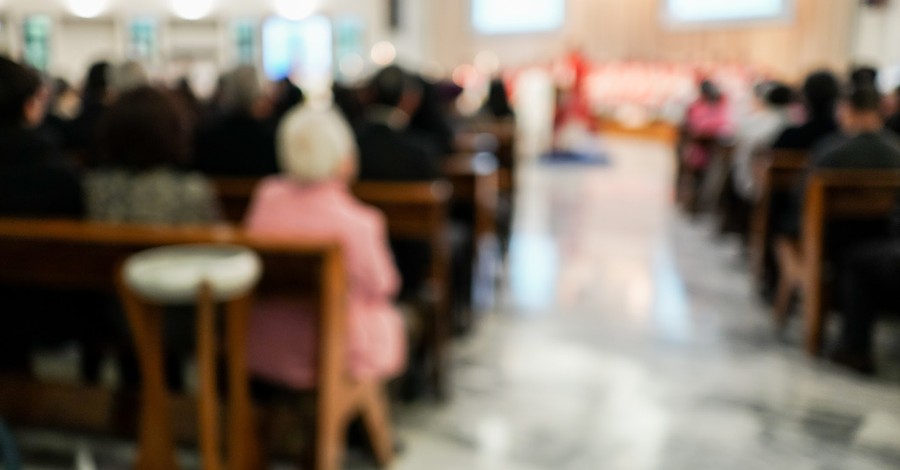
COVID-19 has already influenced the future trajectories of businesses and organizations—the church is no exception. And specifically, predominately African American churches have been impacted in different ways. Our recent data show that over nine in 10 Black Church churchgoers (92 percent)—that is, attendees of primary Black Protestant denominations who have been to church at least once within the past six months—agree that their church responded well to the pandemic. However, small Black Churches are very worried about their ability to thrive long-term.
This data is just the beginning of research we will continue to uncover in the upcoming months as we partner with Rev. Dr. Brianna K. Parker (of Black Millennial Cafe), Urban Ministries, Inc., Movement Day, American Bible Society and Compassionto learn more about the State of the Black Church.
Overall, Black Churchgoers Agree That Their Churches Have Responded Well to the Pandemic
Church leadership across the board has had to remain nimble in this time of uncertainty, responding to shifting regulations and perceptions while also considering the physical, economic and emotional impact the crisis has had on their attendees. For the most part, churches in Black Protestant denominations receive positive remarks for their approaches, with over nine in 10 Black Church congregants (92 percent) agreeing that their church responded well to the pandemic (64 percent strongly agree, 28 percent somewhat agree). Only 8 percent of Black Church attendees voiced that their church’s response has been lacking (6 percent somewhat disagree, 2 percent strongly disagree).
Research also shows a correlation between church commitment and the inclination to offer positive feedback on a church’s response to COVID-19—that is, the more often you attend church, the more likely you are to be satisfied with your church’s response.
Among the half of respondents in this study (51 percent with a weekly commitment to attending a Black church, 71 percent strongly agree that their church responded well. Among the three in 10 of respondents (31 percent who have a monthly commitment to a Black Church, about two in five (59 percent strongly agree that their church responded well. Among the remaining 18 percent of respondents who have attended a service at a Black church at least once within the past 6 months, half (52 percent strongly agree that their church responded well to the crisis.
Accordingly, we see a similar trend among faith segments, with the majority of practicing Christians who attend a Black church (73 percent) strongly agreeing that their church responded well to COVID-19, as opposed to 49 percent of non-practicing Christians.
Small Congregations in the Black Church Feel More Vulnerable to Long-Term Impacts
Despite present concerns, more than half of Black Church attendees (56 percent feel confident as they look ahead and strongly agree that their church will be stable and thriving 3–5 years from now. Exactly one-third (33 percent agrees somewhat while another 12 percent disagree with this statement (2 percent strongly disagree, 10 percent somewhat disagree).
Church size is a factor in attendees’ hopes for the future. Data show that congregants of small Black churches (100 adults or less) are significantly less confident in their church’s ability to thrive over the next 3–5 years, as opposed to congregants in larger Black churches (49 percent small churches vs. 58 percent mid-size churches, 66 percent large churches). Despite the general optimism surrounding the future of the Black Church post-COVID, smaller congregations find themselves in a more vulnerable position than mid-sized or large churches.
One-Third of Black Churchgoers (35 percent) Is Concerned for Their Church’s Long-Term Health
When social distancing guidelines and safe-at-home orders were first implemented months back, Barna began checking in on pastors and their congregants with a weekly survey. Data show that while COVID-19 has had a tremendous impact on churches, especially financially, most pastors are certain their church will survive and hopeful for the future of the Church overall.
However, the majority of Black churchgoers are not confident about the future of their church. We find that about one in three Black churchgoers (35 percent) strongly agree that they are concerned about COVID-19’s long-term effect on their church’s health. Another one-third (37 percent) somewhat agrees with this statement, while 28 percent disagree.
The fallout of the pandemic, while far-reaching, has varied in terms of personal impact, and racial and ethnic minorities have been disproportionately affected. When asked about concerns over the impact to their church, those of lower socioeconomic status and/or those who have not attended college are more likely than those of a higher socioeconomic status and/or those who have achieved a college degree to strongly agree that they are concerned about COVID-19’s lasting impact on their churches.
Given asymmetries in how COVID-19 has touched the African American community, as well as the present push toward racial justice following the death of George Floyd, the Black Church is centrally positioned to address the challenges of this year. As we work with our research partners to report on the state of the Black Church at large, we’ll continue to examine signs of susceptibility and confidence among these congregations.
Photo courtesy: ©Getty Images/Chuang Tzu Dreaming
David Kinnaman is president of Barna Group, a leading research and communications company that works with churches, nonprofits, and businesses. This Barna survey was based on 1,083 GenPop adults and 822 Black Church churchgoers and was conducted between April 22 and May 6, 2020. The sample error for the GenPop responses is plus or minus 2.8 at the 95 percent confidence level, and 3.3 for the BCC sample at the 95% confidence level.










